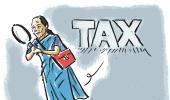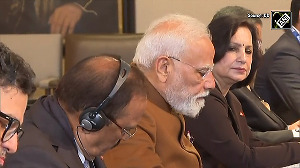While movie stars like Akshay Kumar, Amitabh Bachchan and Salman Khan are among the top I-T payers, very few of the wealthiest Indians figure on the list.

A study by the Delhi School of Economics has found that the wealthier a household, the lesser the income reported by it relative to its wealth.
The recent measures taken by the government against unlawful income and wealth hoarding, however, have delivered the intended results, the study has found, with an increasing trend in income reported by the wealthiest in the past few years.
The study has estimated the relationship between wealth and reported income for more than 7,600 families and their adult members.
The data sources include affidavits filed by election contestants in 2014 and 2019, the ProwessIQ dataset, the Forbes list of billionaires, the annual statistics published by the income-tax department from 2013-2014 to 2018-2019, and the annual accounts of listed companies managed by the wealthiest Indian families (2014 and 2019).
The study found that the average taxable income reported by the bottom 10 per cent of households was more than 170 per cent of family wealth.
In contrast, for the top 5 per cent of households, the reported taxable income amounts to less than 4 per cent of their wealth.
Renowned economist Thomas Piketty told Business Standard that the DSE study shows that income can easily be manipulated downward by top wealth holders, and that wealth is a much better indicator than income of the true capacity of the rich to pay tax.
"We sort of knew this from previous studies in the US or Europe. For instance, the ProPublica study on billionaire tax records in the US last year was not shown with a public source like India's general election filings," said Piketty.
"The bottom line is that it is high time to create new modern, well-administered progressive taxes on net wealth to supplement income taxes," added Piketty.
"The super wealthy will keep paying fewer taxes than the rest of us, which, at some point in time, will destroy our basic social and fiscal contract. It already does, unfortunately," he stated.
The tax liability of the top centile amounts to less than 1 per cent of their wealth, said the study.
For the top 0.1 per cent of the most affluent, the total reported income is only about 2 per cent of their wealth.
The ultra-wealthy individuals on the Forbes list report the lowest income -- about 0.5 per cent of their wealth.
"The super-wealthy Indians on the Forbes list pay a tax that is less than 0.2 per cent of their wealth -- much smaller than the tax liability for individuals at middle wealth levels," observed the study.
The Delhi School of Economics study mentions that in India, while movie stars like Akshay Kumar, Amitabh Bachchan, and Salman Khan are among the top I-T payers, very few of the wealthiest Indians figure on the list.
"Unrealised capital gains are neither taxable nor must be reported in the I-T returns. To reduce their tax liability, wealthy groups keep the gains 'unrealised' by staying invested in equity and commercial properties," said Ram Singh, professor of economics, Delhi School of Economics, and author of the study.
"Their motivation to stay invested is matched by their ability to do so," Professor Singh added.
The wealthy groups, Professor Singh explained, want to reinvest most of their profits in group companies and keep the dividend payout as low as possible.
Affluent Indians are not "overtaxed" because only a part of their income appears in personal income accounts reported to the tax authorities, the professor stated.
"The rest of their income is subject to corporate tax at much lower rates than the top tax rates applicable to the salaried class," added Professor Singh.
The Delhi School of Economics study said the average dividend yield of the top 100 private-listed companies is 0.85 per cent of the value of their equity assets.
The DSE analysis also suggests that people across the wealth spectrum under-report their rental income, and misreport part of their taxable income by disguising it as tax-free farm income.
The study has called for a re-examination of the tax regime to see if it is progressive concerning the total income as opposed to the reported income.
'Moreover, as wealth is an important determinant of capital income, labour income, and social status, it is meaningful to ask: how does the tax liability of different groups compare to their wealth?' asked the study.
Feature Presentation: Ashish Narsale/Rediff.com










